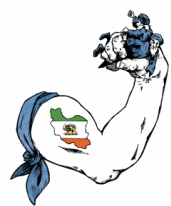By George Friedman
Osama bin Laden has broken his long silence: An audiotape containing his latest statement was delivered to and broadcast by Al Jazeera on Jan. 19. The United States has said that the tape appears to be authentic, and there has been ample time for al Qaeda to have denied its authenticity if it were fake. That hasn't happened, so it appears reasonable to assume that this is, in fact, an authoritative statement by the head of al Qaeda.
This obviously puts to rest the question of whether bin Laden is still alive. The tape apparently was recorded after Nov. 22, 2005, since bin Laden discusses the widely circulated story that U.S. President George W. Bush had suggested to British Prime Minister Tony Blair that Al Jazeera's headquarters should be bombed. That story first appeared in the press on Nov. 22. While the tape theoretically could have been made anytime between Nov. 22 and Jan. 19, logic and precedent dictate that it would have been recorded some time before it was aired. It generally takes -- and has always taken -- at least a week, and often longer, for messages from bin Laden to reach broadcast stage. Security requires a slow and tortuous journey, lest the tape be tracked back to bin Laden's location. So we would guess that the tape was not made much after Jan. 1.
If we were to guess -- and this is pure guess -- we would argue that the tape was made after Dec. 15, 2005. Dec. 15 was the date of the election in Iraq. That election drew extensive participation by the Sunni population and posed a serious crisis for the jihadists in Iraq. It raised the real possibility that a substantial portion of the Sunnis would turn against the jihadists, since they would now have a role to play in the government. There were also serious discussions within the Muslim world, and in the United States, as to whether al Qaeda remained functional and whether bin Laden -- who hadn't been seen or heard from since December 2004 -- was still alive. The Dec. 15 date represented a crisis for al Qaeda, and it was logical that bin Laden would be willing to face the security risk involved with making and transporting a tape. Therefore, not that this is critical, but we would guess the tape was made sometime between Dec. 16 and the first week of January.
The recording reveals two things about bin Laden.
First, he is still in touch with the world. He knows what is going on in American politics, he has access to American books -- he mentions one book by name -- and he is aware of the state of operations in Iraq. The level of detail varies, but it is unlikely that he is stuck in a cave somewhere. Unless there are platoons of couriers bringing reports to him -- something that would violate all rules of security -- it would appear that bin Laden is able to access satellite television and possibly the Internet. Wherever he is, there is electricity and some degree of connectivity to the world. He's getting his news from somewhere.
Second, and much more important, bin Laden is aware of the state of the war and has decided that he needs to change tactics somewhat. He acknowledges the possibility of al Qaeda's defeat, which is not like the old bin Laden. On the tape, according to a translation made by The Associated Press, he says:
"Finally, I say that war will go either in our favor or yours. If it is the former, it means your loss and your shame forever, and it is headed in this course. If it is the latter, read history! We are people who do not stand for injustice and we will seek revenge all our lives. The nights and days will not pass without us taking vengeance like Sept. 11, God permitting."
At this juncture, he is separating the war from the attacks of Sept. 11. He is open to the possibility that the war might be lost. However, acts of revenge -- like the Sept. 11 attacks -- will continue. Bin Laden therefore is referring to Sept. 11 as an operation other than war.
In referring to the true war, he specifically cites Iraq and Afghanistan. About those, he speaks -- at the beginning of his recording -- with his usual bravado: "The war in Iraq is boiling up without end and the operations in Afghanistan are continuing in our favor." Thus, there is a disconnect between this assertion that the war continues and that the trends favor al Qaeda, and the assertion that the war might go either way. Two things are clear: First, bin Laden increasingly means, by "war," operations in Iraq and Afghanistan; and second, he views Sept. 11-type operations not as part of the war, but as an alternative to war.
These points are interesting. But what is fascinating and vital is his turn to Vietnam as a mode of analysis and strategy. Bin Laden refers to the U.S. Army as the "Vietnam butcher." This indicates that he has been thinking about Vietnam, but that thinking becomes clearer in the way he addresses the problems and opportunities in Iraq and Afghanistan.
First, he focuses on anti-war sentiment in the United States:
"But I plan to speak about the repeated errors your President Bush has committed in comments on the results of your polls that show an overwhelming majority of you want the withdrawal of American troops from Iraq. But he has opposed this wish and said that withdrawing troops sends the wrong message to opponents, that it is better to fight them on their land than their fighting us on our land."
Bin Laden clearly knows about the polling trends in the United States and obviously knows that Bush has slipped substantially in opinion polls. He overstates the numbers when he says that the overwhelming majority want withdrawal -- it is a majority, but far from overwhelming -- but he clearly is speaking to the anti-war movement in the United States.
He is also speaking to troops in Iraq, saying: "Pentagon figures show the number of your dead and wounded is increasing not to mention the massive material losses, the destruction of the soldiers' morale there and the rise in cases of suicide among them." Bin Laden is portraying the U.S. Army in Iraq as being in fairly desperate straits, while the Pentagon remains indifferent.
[ I feel I must interject a few words here. The DoD does take the increase in suicide rate very seriously, it has climbed to an equivalent level with Civilian Rates (military personnel usually have a much lower rate than civilians) though it is still below the Military Suicide Rate for instance in 1995.
Iraq Troops Suicide Rate Spikes ]
Analytically, he views the condition of the United States as if it were Vietnam. Bin Laden is asserting that there is massive sentiment against the war and that Bush, like Lyndon Johnson and Richard Nixon, is resisting that movement and resisting withdrawal. He is portraying the Army in Iraq as if it were the Army in Vietnam, late in that war. The truth or falsehood of the view is not material here -- nor should his statements be taken as propaganda directed at the American public. Bin Laden is not unsophisticated. He is not trying to persuade the American public to oppose the war. His view is that the polls show that Bush's political base has collapsed, along with morale in the U.S. Army.
Bin Laden then pulls a maneuver right out of Ho Chi Minh's playbook, saying:
"We don't mind offering you a long-term truce on fair conditions that we adhere to. We are a nation that God has forbidden to lie and cheat. So both sides can enjoy security and stability under this truce so we can build Iraq and Afghanistan, which have been destroyed in this war. There is no shame in this solution, which prevents the wasting of billions of dollars that have gone to those with influence and merchants of war in America who have supported Bush's election campaign with billions of dollars -- which lets us understand the insistence by Bush and his gang to carry on with war. If you are sincere in your desire for peace and security, we have answered you."
[ Another interjection on the meaning of "long term truce" I would advise some study on two issues, the concept of
"Hudnaنة) is an Arabic term meaning "truce" or "armistice" as well as "calm" or "quiet", coming from a verbal root meaning "calm". It is sometimes translated as "cease-fire". In the Lisan al-Arab (Ibn al-Manzur's definitive dictionary of classical Arabic, dating to the 14th century) it is defined as follows:
"hadana: he grew quiet. hadina: he quieted (transitive or intransitive). haadana: he made peace with. The noun from each of these is hudna."
A particularly famous early hudna was the Treaty of Hudaybiyyah between Muhammad and the Quraysh tribe.
According to Umdat as-Salik, a medieval summary of Shafi'i jurisprudence, hudnas with a non-Muslim enemy should be limited to 10 years: "if Muslims are weak, a truce may be made for ten years if necessary, for the Prophet (Allah bless him and give him peace) made a truce with the Quraysh for that long, as is related by Abu Dawud" ('Umdat as-Salik, o9.16)."
And the information in an Essay by Tarek Heggy where he states,
" A few years ago, I discovered that there is no equivalent in the Arabic language, classical or colloquial, for the English word ?compromise?, which is most commonly translated into Arabic in the form of two words, literally meaning ?halfway solution?. I went through all the old and new dictionaries and lexicons I could lay my hands on in a futile search for an Arabic word corresponding to this common English word, which exists, with minor variations in spelling, in all European languages, whether of the Latin, Germanic, Hellenic or Slavic families. The same is true of several other words, such as ?integrity?, which has come to be widely used in the discourse of Europe and North America in the last few decades and for which no single word exists in the Arabic language. As language is not merely a tool of communication but the depositary of a society?s cultural heritage, reflecting its way of thinking and the spirit in which it deals with things and with others, as well as the cultural trends which have shaped it, I realized that we were here before a phenomenon with cultural (and, consequently, political, economic and social) implications"
Those two factors do complicate any Truce leading to a Lasting Peace ]
If there is a massive anti-war movement in the United States and if the Army is weary of war, then the next logical move is to offer negotiations toward a cease-fire. Bin Laden completely understands that Bush would reject that offer. His hope is that the offer of a truce would further split the United States -- undermining Bush's political power even more and giving ammunition to those who want an end to the war. "If you are sincere in your desire for peace and security," he says, "we have answered you."
During the Vietnam war, the North Vietnamese introduced the idea of a negotiated settlement in large part because they wanted to provide a rational basis for the anti-war movement. They understood that there would be only a tiny pro-Hanoi movement in the United States. They also understood that as the war dragged on and victory became less visible, support would grow for a negotiated settlement as the only reasonable outcome. The view of the pro-war faction -- that the offers of peace talks did not provide any basis for a real settlement but were a cover for a North Vietnamese victory -- was opposed by those who argued that settlement and withdrawal were the only rational actions for the United States in an unwinnable war.
Wherever he is, bin Laden has done a lot of thinking, and he apparently has come to think of himself as Ho Chi Minh. From his viewpoint, Bush, like Johnson, is resisting a wave of anti-war sentiment. The Army is tired. An offer of a long-term, honorable truce would build up the anti-war faction. Add to that the promise that even if the United States wins the wars in Iraq and Afghanistan, al Qaeda will continue to stage Sept. 11-type attacks, and you have an added incentive for a negotiated settlement.
Bin Laden may be deluding himself, but he smells serious political problems for Bush in the United States and a movement that wants to withdraw forces in return for a truce that guarantees no further attacks on the American public. That is the heart of his message. He is prepared to negotiate a truce. He believes that this will fuel anti-war sentiment today, just as the offer of negotiations fueled anti-war sentiment in the 1960s. And if that truce is agreed to, he believes that he can reshape the Islamic world today much as North Vietnam reshaped Indochina.
What is most clever in this move is that it doesn't require actual negotiations. If Bush starts to draw down forces in Iraq, bin Laden can declare a truce and imply in the Muslim world that he compelled the United States to capitulate. He is trying to trap Bush in two ways. If there isn't a drawdown, Bush would face an anti-war movement calling for truce with al Qaeda. And if there is a drawdown, Bush would face assertions that he is implicitly or secretly agreeing to the truce that bin Laden proposed.
Bin Laden is not Ho Chi Minh. No one will call him "Uncle Osama" or liken him to George Washington, as they did Ho. It is difficult to imagine that anyone -- pro- or anti-war -- in the United States would think seriously of negotiating with him. Even the Europeans, who have never seen an offer of negotiation they didn't like, took a pass when it came to bin Laden. Nevertheless, as a glimpse into bin Laden's strategic thinking, the view is fascinating. Above all, there is this parallel: The most creative diplomacy of the North Vietnamese followed their defeat in the Tet Offensive. The moment that bin Laden's strategic position in Iraq (but not Afghanistan) is at its weakest -- following the Dec. 15 elections -- is the moment he offers a truce.
Fascinating.
Send questions or comments on this article to analysis@stratfor.com.
This report may be distributed or republished with attribution to Strategic Forecasting, Inc. at
www.stratfor.com
Linked to
Midweek Trackback & Linkfest Party at Stuck On Stupid
| Post Comment | Permalink | Share This Post
Updated: Wednesday, 25 January 2006 8:05 AM CST

















